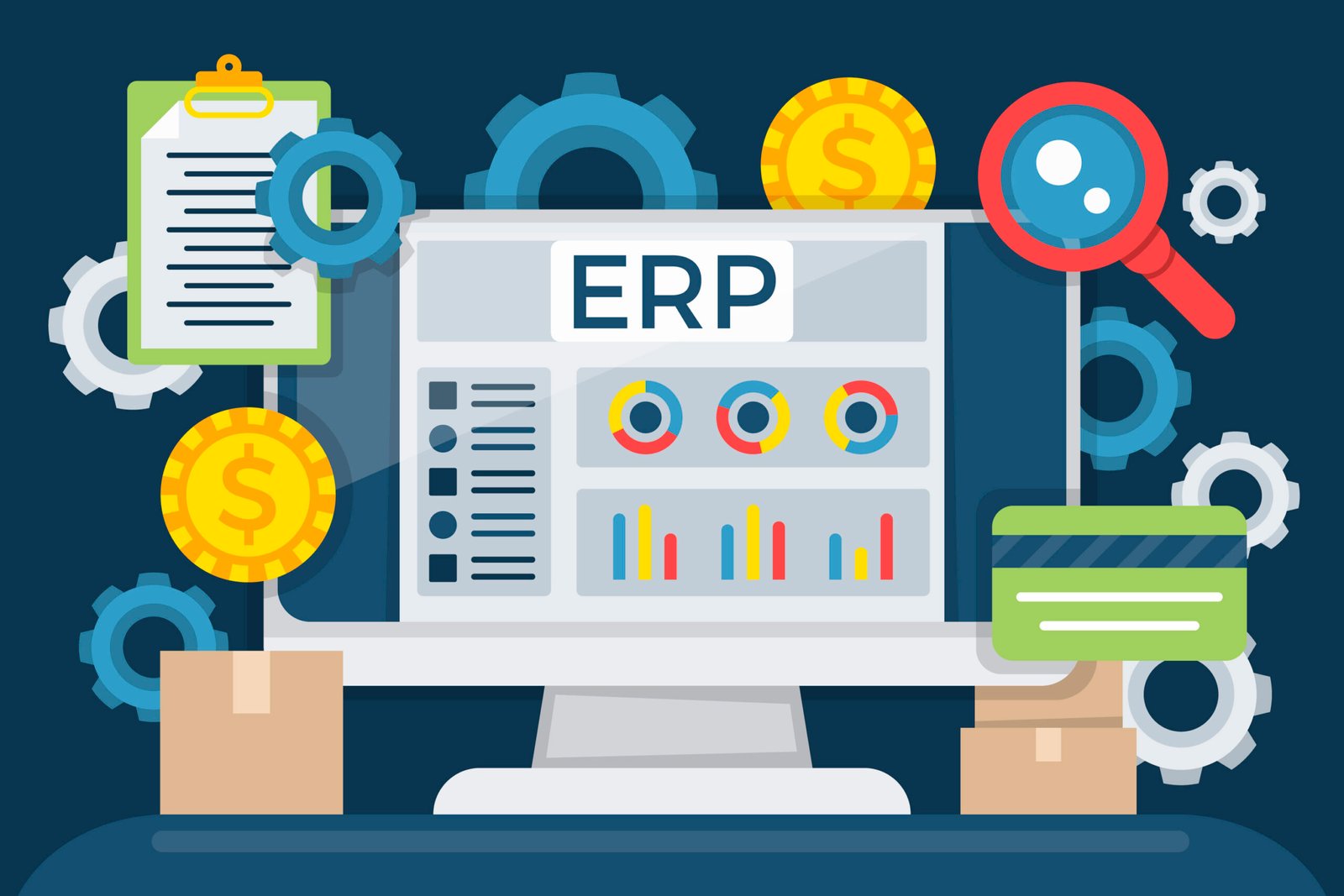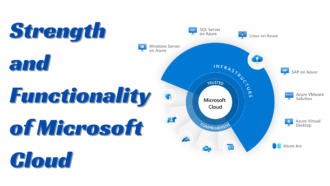Unveiling the Mastery: The Crucial Role of an ERP Project Manager and Vital Skills for Success
- 1 The Role of an ERP Project Manager
- 1.1 Vendor Management and Relationship Building
- 1.2 Risk Management and Mitigation
- 1.3 Change Management and Stakeholder Engagement
- 1.4 Project Planning and Execution
- 1.5 Quality Assurance
- 2 Essential Skills Every ERP Project Manager Needs
- 2.1 Strong Leadership and Communication
- 2.2 Exceptional Problem-Solving Abilities
- 2.3 Expertise in ERP Systems and Processes
- 2.4 Adequate Time and Resource Management
- 2.5 Adaptability and Flexibility
- 3 Conclusion
Enterprise Resource Planning (ERP) projects involve implementing integrated software solutions to streamline and optimize various business processes, including finance, human resources, supply chain management, and more. These projects are critical for the digital transformation of organizations, enhancing efficiency and providing a competitive edge. An ERP project manager’s role is paramount in ensuring ERP projects’ success. These individuals are entrusted with overseeing and coordinating the implementation of these systems within organizations. This article will delve into the critical duties of an ERP project manager and highlight the essential skills required for success in this vital role.
The Role of an ERP Project Manager
ERP project managers serve as the linchpin in ERP implementations, ensuring that every aspect of the project is meticulously planned and executed. Their responsibilities encompass a broad range of duties, each crucial for the successful deployment and operation of the ERP system.
Vendor Management and Relationship Building
ERP implementations often involve working closely with external vendors to deploy software solutions. An ERP project manager is crucial in managing these vendor relationships, ensuring deliverables are met according to agreed-upon terms and promptly addressing any issues or concerns. Building solid relationships with vendors fosters collaboration, enhances communication, and promotes the project’s overall success. Effective vendor management involves:
- Contract Negotiation: Ensuring that all terms and conditions are clearly defined and agreed upon.
- Performance Monitoring: Regularly assess vendor performance to ensure service level agreements (SLAs) compliance.
- Issue Resolution: Addressing any issues or disputes swiftly to avoid project delays.
Risk Management and Mitigation
ERP projects are inherently complex and may encounter various challenges along the way. The ERP project manager is responsible for identifying potential risks and developing strategies to mitigate them effectively. Adept risk management is essential for ensuring success, whether addressing technical issues, managing scope creep, or navigating organizational change. Critical activities in risk management include:
- Risk Identification: Regularly assessing the project environment to identify potential risks.
- Risk Analysis: Evaluating the impact and likelihood of identified risks.
- Risk Mitigation Planning: Developing strategies to minimize the impact of risks, including contingency plans.
- Risk Monitoring: Continuously monitoring and adjusting risk management plans as the project progresses.
Change Management and Stakeholder Engagement
Implementing an ERP system often requires significant changes to existing business processes and workflows. To effectively manage these changes, the ERP project manager must engage with stakeholders at all levels of the organization. By fostering buy-in and addressing concerns proactively, they facilitate a smooth transition to the new system and maximize user adoption. Change management activities include:
- Stakeholder Analysis: Identifying and understanding the needs and concerns of all stakeholders.
- Communication Planning: Developing and executing a communication plan to keep stakeholders informed and engaged.
- Training and Support: Ensuring that users are adequately trained and supported throughout the transition.
- Feedback Mechanisms: Implementing mechanisms for stakeholders to provide feedback and for the project team to respond accordingly.
Project Planning and Execution
One of the core responsibilities of an ERP project manager is to create and execute a comprehensive project plan. This involves defining project scope, objectives, timelines, and resources. Key tasks include:
- Scope Definition: Clearly define the project’s boundaries to prevent scope creep.
- Work Breakdown Structure (WBS): Breaking the project into manageable tasks and deliverables.
- Resource Allocation: Ensuring that the right resources (human, financial, and technical) are available and allocated effectively.
- Schedule Management: Creating and maintaining a project schedule to ensure the timely completion of tasks.
Quality Assurance
Ensuring the quality of the ERP implementation is critical. The project manager is responsible for implementing quality assurance processes to ensure that the project meets the defined standards and delivers the expected outcomes. This involves:
- Quality Planning: Defining the quality standards and criteria for the project.
- Quality Control: Regularly inspecting and testing project deliverables to ensure they meet the quality standards.
- Continuous Improvement: Identifying and implementing improvements in project processes to enhance quality.
Essential Skills Every ERP Project Manager Needs
To excel in their role, ERP project managers must possess a diverse set of skills. These skills enable them to navigate the complexities of ERP implementations and drive project success.
Strong Leadership and Communication
Effective leadership is essential for guiding the team toward a common goal. ERP project managers must have exceptional communication skills to communicate objectives, expectations, and progress updates to stakeholders. Clear and concise communication fosters collaboration and ensures alignment throughout the project lifecycle. Essential aspects of leadership and communication include:
- Vision and Direction: Clearly articulating the project’s vision and strategic objectives.
- Motivation and Morale: Inspiring and motivating the project team to achieve high performance.
- Conflict Resolution: Effectively addressing and resolving conflicts within the team or with stakeholders.
Exceptional Problem-Solving Abilities
ERP implementations can present complex challenges that require innovative solutions. Successful ERP project managers excel in problem-solving, leveraging their analytical skills to identify root causes and develop pragmatic strategies for resolution. They tackle challenges optimistically and demonstrate resourcefulness in discovering innovative solutions. Critical problem-solving skills include:
- Analytical Thinking: Breaking down complex problems into manageable parts for thorough analysis.
- Creativity: Developing innovative solutions to overcome challenges.
- Decision Making: Making informed and timely decisions to keep the project on track.
Expertise in ERP Systems and Processes
A deep understanding of ERP systems and business processes is fundamental for ERP project managers. They must possess comprehensive knowledge of the implemented software and the underlying business requirements driving the project. Their proficiency empowers them to make well-informed decisions and adeptly oversee the implementation process. Significant areas of expertise include:
- ERP Software Knowledge: Understanding the functionalities and limitations of the ERP system.
- Business Process Knowledge: Being familiar with the business processes that the ERP system will support.
- Technical Acumen: Having a basic understanding of technical concepts and terminologies to communicate effectively with technical teams.
Adequate Time and Resource Management
ERP projects often operate within tight timelines and budgets, requiring meticulous time and resource management. Successful ERP project managers prioritise tasks, allocate resources efficiently, and optimise schedules to ensure timely delivery within budget constraints. They focus on objectives while proactively addressing any deviations from the plan. Critical aspects of time and resource management include:
- Task Prioritization: Identifying and focusing on critical tasks that drive project success.
- Resource Optimization: Ensuring that resources are used efficiently and effectively.
- Schedule Adherence: Monitoring and adjusting the project schedule to avoid delays.
Adaptability and Flexibility
ERP projects often involve unexpected changes and challenges. ERP project managers must be adaptable and flexible, capable of adjusting courses as needed to accommodate shifting priorities or address emerging challenges. Their ability to navigate change with resilience ensures project continuity and success. Critical adaptability skills include:
- Change Management: Effectively managing and responding to project scope, schedule, or resource changes.
- Resilience: Maintaining focus and composure under pressure.
- Continuous Learning: Staying updated with the latest industry trends and best practices.
Conclusion
The position of an ERP project manager is multifaceted, demanding a varied skill set to navigate the intricacies of ERP implementations effectively. From providing leadership and coordination to leveraging essential skills such as problem-solving and communication, ERP project managers play a pivotal role in driving project success. By nurturing these fundamental skills, prospective ERP project managers can set themselves up for success in this demanding yet gratifying position.
ERP project managers are the architects of digital transformation within organizations. They ensure that ERP systems are implemented smoothly and deliver the intended business benefits. Their role is critical not only for the successful deployment of ERP systems but also for the long-term success and competitiveness of the organization. As the demand for ERP systems continues to grow, the role of the ERP project manager will remain indispensable, requiring continuous learning and adaptation to meet the evolving needs of businesses.



















